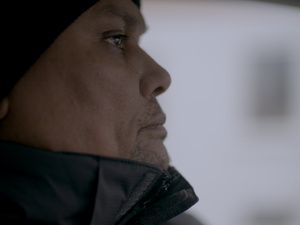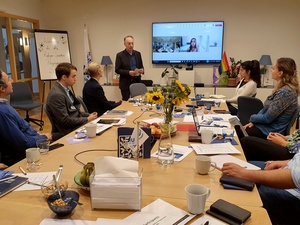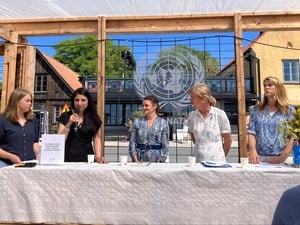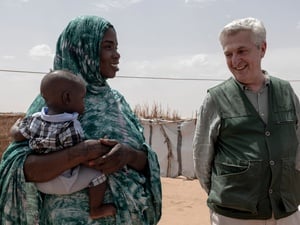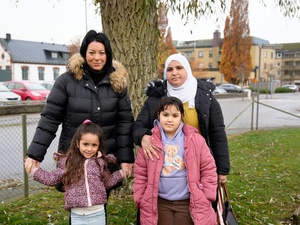“I can’t stay in Sweden and I cannot be sent to any other country”

“I can’t stay in Sweden and I cannot be sent to any other country”
Almontaser Quteineh, 39, has been living in Sweden as a stateless person since 2015 together with two of his children. They are stateless Palestinians and are not recognized as citizens of any country.
Without a dedicated procedure for stateless persons to request protection in Sweden, Almontaser applied for asylum. After having had his claim for asylum rejected three times, Almontaser says that, “I can’t stay in Sweden and I cannot be sent to any other country.”
His two children, 15 and 12 years old, go to school in Sweden, but face obstacles related to not having the required identity documents. They have not been able to see their mother for five years. Almontaser explains that, “It’s like a nightmare. [My daughter] has always said, ‘We will never get the personal identity number and I will never meet my mother’.”
Almontaser brings up challenges that he experiences on a daily basis. Without access to a personal identity number, the digital identification system BankID, or other documents, Almontaser and his family face difficulties in accessing basic services such as getting a bus pass or mobile phone contract.
“[My children] keep asking why we are stateless and why this happened to us, and I don’t find answers for them,” Almontaser explains.
The video with Almontaser was a joint production between UNHCR, the UN Refugee Agency, and SOAS, the Swedish Organization Against Statelessness.
The Swedish Organization Against Statelessness was started in 2020 with the mission to raise awareness about statelessness in Sweden and influence policy to ensure everyone’s right to a nationality.
UNHCR has been leading the global #IBelong campaign since 2014, calling for an end to statelessness by 2024.
Sweden has made several important pledges to address statelessness, and over 22,000 formerly stateless persons have been granted Swedish citizenship since 2014.
Currently, around 27,000 people in Sweden are stateless or have “unknown nationality”. UNHCR recommends Sweden to implement a statelessness determination procedure in order to better identify and protect stateless persons, as well as to strengthen safeguards for children born stateless in Sweden.




